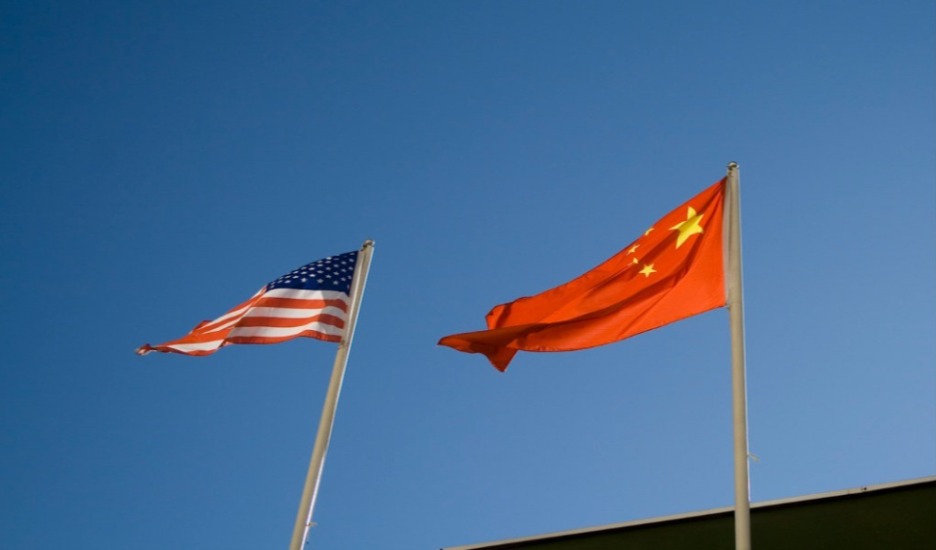China’s Ridiculously Weak Legal Argument Against Complying with the South China Sea Arbitration Award
The forthcoming arbitral award in the dispute between the Philippines and China has become one of the most anticipated international judicial decisions in recent history, even dominating discussion at the ongoing Shangri-La Dialogue in Singapore. To weaken the legitimacy of any negative arbitral award, China has launched an impressive diplomatic and global public relations campaign denigrating the legal basis for the tribunal’s award.
Published by The Lawfare Institute
in Cooperation With

The forthcoming arbitral award in the dispute between the Philippines and China has become one of the most anticipated international judicial decisions in recent history, even dominating discussion at the ongoing Shangri-La Dialogue in Singapore. To weaken the legitimacy of any negative arbitral award, China has launched an impressive diplomatic and global public relations campaign denigrating the legal basis for the tribunal’s award. The Philippines has launched a much less impressive campaign in defense of the award that has mostly just asserted that China should “follow international law” without actually explaining why China’s legal arguments are wrong.
While I have expressed strong criticism of the Philippines’ use of arbitration (and the U.S. role in supporting it) from a strategic perspective, I don’t have any such criticism of their legal arguments. China’s claim that it can legally ignore the pending arbitral award is not only wrong, it is legally insupportable. But because this claim is repeated again and again by Chinese diplomats, scholars, and journalists, outside observers might find China’s legal arguments persuasive or at least plausible. Indeed, a former Singaporean foreign minister has said so just this week. So as a public service to journalists, policy analysts, and other non-lawyers, I offer a simple legal primer on why China has a very weak, or even ridiculous, argument for why it is allowed to legally boycott the South China Sea arbitration.
China claims that it has no duty to abide by the award of the UN arbitral tribunal because China has made a declaration limiting that tribunal’s jurisdiction to exclude “territorial or sovereignty” disputes. Indeed, Chinese officials have stated that defying the ruling is necessary in order to protect and uphold international law and have accused the Philippines of “violating” international law by bringing this proceeding.
This argument doesn’t fly for one very simple reason. It willfully ignores Article 288(4) of the UNCLOS, which states: “[i]n the event of a dispute as to whether a court or tribunal has jurisdiction, the matter shall be settled by decision of that court or tribunal.” This provision means that the arbitral tribunal gets to determine whether or not China’s declaration excludes or limits their jurisdiction over the Philippines’ claims.
The arbitral tribunal in this case spent over a year considering just this question and decided in a very long and thorough award that only seven of the Philippines’ claims clearly fall outside the scope of China’s declaration. This means that these seven claims do not involve or relate to maritime delimitation or sovereignty in a way that would fall within China’s declaration. The other eight claims, the tribunal decided, may fall within China’s declaration depending on the outcome of other legal determinations.
When China joined UNCLOS in 1996, it freely agreed to subject itself to compulsory dispute resolution under Article 296 (“Any decision rendered by a court or tribunal having jurisdiction under this section shall be final and shall be complied with by all the parties to the dispute) as well as Article 288(4) (“jurisdiction [shall be] settled by decision of that court or tribunal.”). Moreover, this type of provision is hardly unusual or unprecedented. China has agreed to similar provisions in the Convention on the Settlement of Investment Disputes (ICSID) (See Article 41) and the Statute of the International Court of Justice (see Article 34). This principle that a court or arbitration tribunal can determine its own jurisdiction goes back as far as the U.S.-U.K. “Alabama” arbitration in the 19th century.
The reason for this rule is obvious. If an arbitral tribunal is not permitted to determine what falls within the scope of its jurisdiction, one party (as China is trying to do here) could always avoid arbitration by claiming that the tribunal lacks jurisdiction. The “compulsory” nature of the arbitration – which China agreed to when it signed and ratified UNCLOS – would be rendered meaningless.
Yet as far as I can tell, no Chinese official or scholar has even mentioned Article 288(4), much less explained why they believe China is not bound by this clear and unequivocal language. The closest defense I’ve found is from last month by Mr. Xu Hong, the Director General of Treaty Affairs for China’s Foreign Ministry. He argued:
States have the right not to accept or participate in the arbitration. China has no obligation to accept or participate in proceedings that are deliberately provocative. There is no lack of precedents in not accepting and not participating in international judicial or arbitral proceedings that are illegally initiated. It is not an innovation by China.
Director-General Xu doesn’t cite any sources for his claim that “there is no lack of precedents in not accepting and not participating in” illegally initiated international arbitral proceedings. He is probably thinking of the most famous recent case of “non-participation”: the U.S. government’s refusal to accept the jurisdiction of the ICJ over a claim by Nicaragua. But that is hardly a good legal precedent for China here, because there was wide agreement that the U.S. had violated its obligations under the ICJ, even though it refused to comply with the judgment.
At the end of the day, the weakness of China’s legal arguments may not matter very much. China has consistently stated that it will not abide by the tribunal’s ruling, and the arbitral tribunal is not in a position to legally enforce the award. But the legitimacy of China’s boycott will be measured in large part by the strength of its legal arguments. China has succeeded through its public relations campaign in clouding the issue and getting 40 countries to agree that China (and not the Philippines) is the one following international law. Critics of China’s response to the arbitration need a simple, clear response to China’s confusing and murky legal claims as to why it does not have to comply with the arbitration. Article 288(4) is that response.



.jpg?sfvrsn=5a43131e_9)

